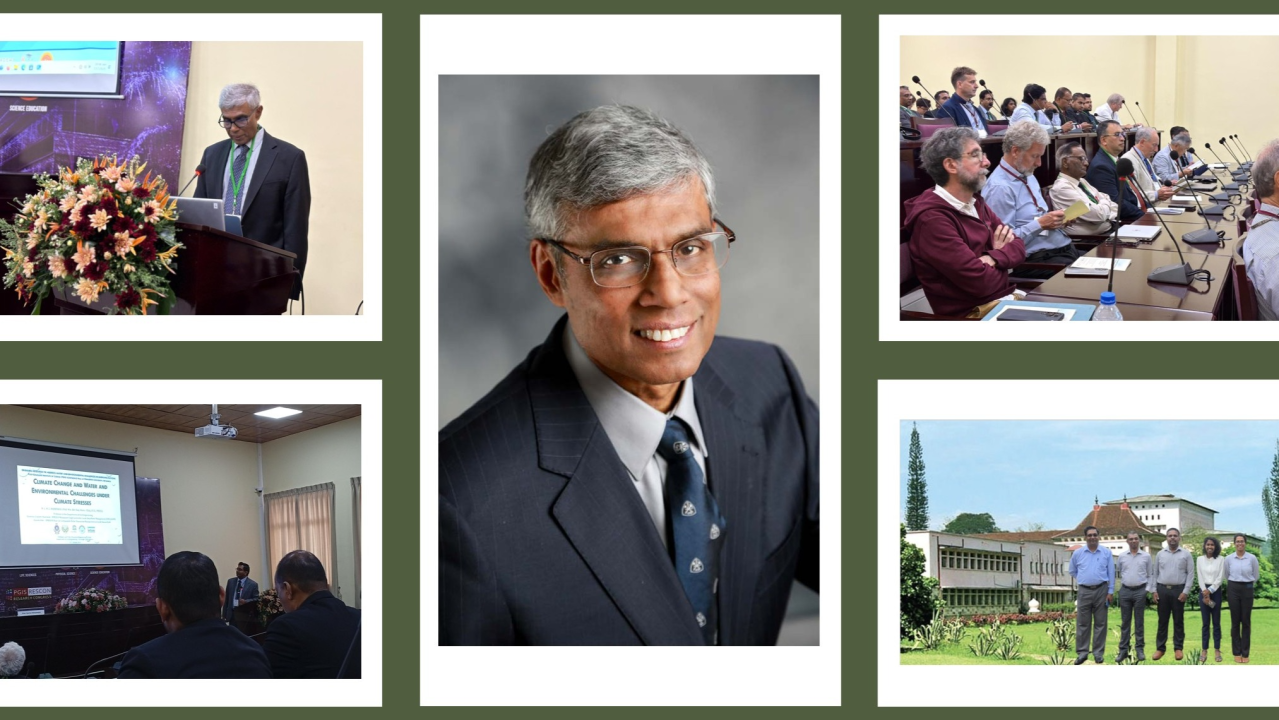
A Retirement Gift of Global Impact: Prof. Tissa Illangasekare Brings World Water Leaders to Sri Lanka
Bridging Research to Address Water and Environmental Challenges in Emerging Nations: A Case Study of Sri Lanka –
PGIA, Peradeniya, Sri Lanka — July 17–18, 2025
In a gesture unparalleled in academia, Professor Tissa Illangasekare, AMAX Endowed Distinguished Chair and Director at the Colorado School of Mines (Tissa Illangasekare – Civil and Environmental Engineering), chose to celebrate his retirement not with a lavish party abroad, but with a transformative scientific gift to Sri Lanka’s water sector.
Instead of a conventional send-off, Prof. Illangasekare, together with his long-time colleague Prof. Ranjith Mapa, Emeritus Professor of Soil Science at the University of Peradeniya, spearheaded the organization of a landmark international conference at the University of Peradeniya, bringing together more than 30 of the world’s most distinguished researchers and professionals in water, climate, and environmental sciences (Sponsored conferences – Center for Experimental Study of Subsurface Environmental Processes).
Themed “Bridging Research to Address Water and Environmental Challenges in Emerging Nations: A Case Study of Sri Lanka”, the two-day event convened globally renowned experts from the USA, Europe, China, Japan, and beyond, alongside Sri Lankan scientists, policymakers, and university leaders.
Far from ceremonial speeches, the conference focused on rigorous scientific exchange and practical problem-solving for developing nations. Five cross-cutting themes guided the discussions:
- Water sustainability
- Climate change adaptation
- Food security
- Environmental protection and health
- Natural hazards
Panels included both international research leaders and Sri Lankan experts from the Universities of Peradeniya, Moratuwa, and Colombo, as well as government agencies. Together, they examined how cutting-edge science can be translated into actionable solutions for Sri Lanka’s urgent challenges: water scarcity, climate-driven floods and droughts, agricultural stress, industrial pollution, and ecosystem degradation.
Among the global attendees were luminaries such as Petra Döll (Germany, global water resources), Majid Hassanizadeh (Netherlands, porous media flow), Christopher Higgins (USA, emerging contaminants), Upmanu Lal (USA, hydrology and risk management), Chunmiao Zhang (China, groundwater sustainability), and Masahiro Imbe (Japan, rainwater harvesting), underscoring the unprecedented scale and credibility of the event.
Representatives from the University of Moratuwa (UoM) and the UNESCO Madanjeet Singh Centre for South Asia Water Management (UMCSAWM) also contributed actively. I had the privilege of joining and presenting with colleagues from UoM and UMCSAWM (UNESCO Madanjeet Singh Centre for South Asia Water Management), adding Sri Lankan research perspectives to this global dialogue.
The conference will culminate in a summary report and peer-reviewed publication, ensuring its outcomes resonate beyond the event. By leveraging global expertise and local insights, the gathering is expected to spark long-term collaborations, guide policy frameworks, and strengthen Sri Lanka’s role in global water and climate science.
Prof. Illangasekare’s vision, turning his retirement into a legacy for Sri Lanka’s future, together with Prof. Mapa’s leadership, was praised as a once-in-a-lifetime contribution. More than a felicitation, it became a living gift of knowledge, collaboration, and capacity building, positioning Sri Lanka as a hub for addressing the water and environmental challenges faced by emerging nations worldwide. His vision and generosity have not only honored his remarkable career but also provided Sri Lanka with an enduring scientific gift, one that will shape its Water and Climate Future for years to come.

Copyright © 2026 UNESCO Madanjeet Singh Centre for South Asia Water Management
WordPress Theme by WPZOOM
